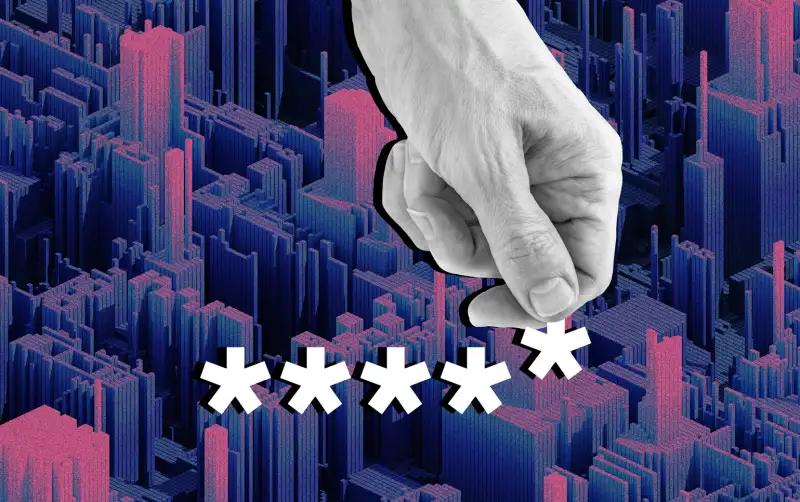The 25 Worst Cities for Identity Theft So Far This Year

This year is on track to become one of the worst on record for identity theft.
In the first half of 2023, Americans have lodged more than half a million complaints of identity theft, according to the latest data from the Federal Trade Commission (FTC). Residents in certain cities — especially in Georgia and Florida — may be particularly vulnerable.
“I don’t think it’s an exaggeration to say it is the biggest non-violent crime issue that we’re facing,” says Eva Velasquez, president and CEO of the nonprofit Identity Theft Resource Center.
As of June, the FTC’s database contained nearly 560,000 complaints related to identity theft, putting 2023 on track to exceed 1 million complaints nationwide. Cases of identity theft can run the gamut, but in general, scammers use someone else's personal information to take out a loan, steal government benefits or commit another type of financial fraud.
Annual identity theft complaints have surpassed 1 million before — but only from 2020 through 2022, due in large part to rampant theft of pandemic benefits programs, like PPP loans and boosted unemployment insurance. Velasquez says that type of theft is largely over.
Yet identity theft complaints remain elevated, as thieves appear to have changed tactics. Now, credit card fraud has become far and away the most common type of identity theft reported to the FTC, representing about 40% of all cases in the FTC’s database.
Despite the inundation of complaints over the past few years, Velasquez says identity theft remains “vastly underreported.”
Worst cities for identity theft
Here are 25 metropolitan areas with the most identity theft complaints per capita.
Metro
Complaints per 100,000 residents
Total complaints
Miami, Florida
398
24,303
Tuscaloosa, Alabama
337
897
Atlanta, Georgia
332
20,002
Savannah, Georgia
306
1,227
Houston, Texas
267
18,838
Killeen, Texas
259
1,214
Las Vegas, Nevada
255
5,692
Philadelphia, Pennsylvania
253
15,735
Orlando, Florida
251
6,601
Hartford, Connecticut
247
2,999
Los Angeles, California
244
32,224
Dallas, Texas
243
18,306
Florence, South Carolina
239
480
Macon, Georgia
229
533
LaGrange, Georgia
220
230
Monroe, Louisiana
213
441
Boston, Massachusetts
212
10,420
Memphis, Tennessee
211
2,824
Lakeland, Florida
211
1,508
Montgomery, Alabama
207
796
Charlotte, North Carolina
203
5,321
North Port, Florida
198
1,630
Chicago, Illinois
195
18.701
Columbia, South Carolina
192
1,586
Columbus, Georgia
191
623
Georgia and Florida cities — the two worst states for identity theft complaints — notably dominate the list. Identity theft expert Axton Betz-Hamilton previously told Money that identity theft complaints appear to mirror states’ overall crime rates.
There are many factors at play, however, and some industry experts point out that it’s difficult to draw conclusions from the trends in the FTC data. They say complaints are more an indicator of who is most likely to report identity theft rather than experience it.
Identity theft tips
There are steps you can take to protect yourself from identity theft, as well as manage your finances after it has happened. Here's what experts recommend:
- Freeze your credit: Even if you haven’t experienced identity theft, experts say you should freeze your credit as a preventative measure. Whenever you need new credit, you can briefly unfreeze it then freeze it again. That way if your identity is stolen, the thieves won’t be able to open new credit cards or take out loans in your name.
- ‘Embrace skepticism’: Velasquez says folks should “embrace skepticism” when people — who could be identity thieves posing as government or bank workers — contact you asking for information. With artificial intelligence, it’s easier than ever to generate scripts and convincing graphics to make it appear like the request is coming from a valid source. That’s why experts say not to engage with the person if you weren’t the one to initiate contact.
- Use unique passwords: “Up your password game,” Velasquez says, recommending strong and unique passwords across all of your accounts — meaning no repeats. She says password managers can help you create and keep track of your various account credentials. For added protection, she recommends enabling multi-factor identification (MFA) if available. MFA will help verify your identity when you log into an account, typically by emailing, calling or texting you a one-time code that you can use to sign in.
- Get help: Experts say identity theft affects all types of people — across all ages, races and income levels. However, victims often experience deep shame, especially older Americans. That can lead to the problem being internalized and left uncorrected. If you suspect identity theft could have happened to you, there are plenty of free resources available, including nonprofits like Identity Theft Resource Center, which can help you screen potential scams — or recover from one if it’s already happened — at no charge. The FTC also has extensive resources at identitytheft.gov.
Identity thieves often succeed by pressuring you into acting quickly. But no legitimate source is going to mind if you take a little bit of time to verify what they’re telling you or to seek advice.
“Just take a beat,” Velasquez says. “You don’t have to reply, send money, give information away — you can take five minutes to think.”
More from Money:
7 Best Identity Theft Protection Services
Beware of a Boom in Student Loan Scams as Payments Resume, FTC Warns
Biden Moves to Ban 'Junk Fees' Charged by Banks, Hotels, Ticket Sellers and More

